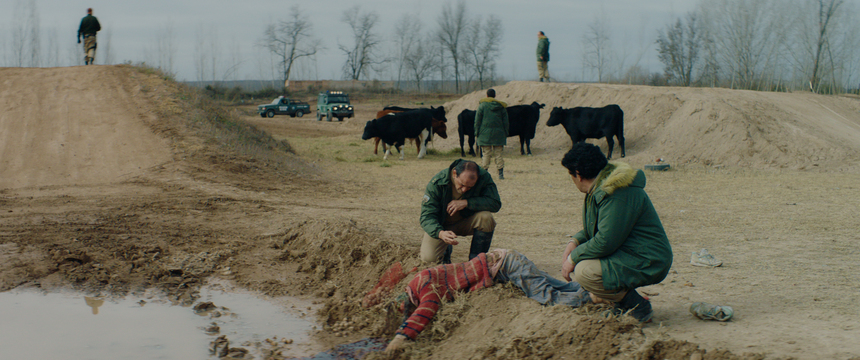Cannes 2018 Review: MURDER ME, MONSTER, A Minimalist Acid-Gore Crime Thriller
Argentinean filmmaker Alejandro Fadel's latest socially conscious thriller blends arthouse and genre into a nightmarish narrative.

Amat Escalante's The Untamed, a marriage of libidinal Lovercraftian horror to social drama, proved to be fruitful and ended up in many top 10 lists summarizing the year 2017 in world cinema. In 2018, Carlos Reygadas delivered an even more bemusing and surreal venture, Post Tenebras Lux, a patchwork of light horror, absurd, psychological and oneiric. The current world cinema breathes genremorphism, a symbiosis of arthouse and genre elements and a natural path for Argentinian screenwriter-cum-director Alejandro Fadel.
Fadel has written scripts for other directors, such as Pablo Trapero, Damián Szifrón, Walter Salles, Adrian Caetano, and Peter Weber, among others, of which several have merged elements of social dramas and thrillers. He graduated to directing with his visually compelling feature debut The Wild Ones. His sophomore feature, Murder Me, Monster, replicates the genre-arthouse configuration, although it pledges a stronger loyalty to genre filmmaking.
Murder Me, Monster opens radically with a close-up on a woman in a bucolic setting, a confused mimic as droplets of blood slowly roll from a slash wound on her neck. Her head tilts into an unnatural position: backward, as though she were the victim of a botched decapitation, and she sways it into its proper place. Rural police officer Cruz arrives on the scene to investigate a case of a headless corpse in a remote region by the Andes Mountains. The bizarre incident grows into a serial rampage as more headless women turn up in the countryside. The prime suspect becomes the husband of Cruz's lover, Francisca, who appears to be mentally disturbed and blames the beheadings on "a monster".
The Argentinean director conjures up a crime formula as Cruz attempts to find the killer on the loose in a sleepy, isolated, region. Isolation becomes the central motif in the sparsely populated story and region. Using the crime elements as invisible borders to keep the structure, his storytelling gradually dilutes into Twin Peaks-style melancholy with a surreal tone. The protagonist adapts unconventional methods as an Argentinean Dale Cooper and not twin but triple peaks play a prominent role in locating the perpetrator of the bizarre in an elegant nod to Lynch's seminal television series.
Fadel draws from his wide array of experience with socially conscious thrillers, existential gloom and supernatural mystery. However, another character keeps interfering with the expected unspooling of narrative, his boss, who maintains a father-like relationship, even stroking Cruz's hair as he enumerates odd types of phobias. Capitán, hardened by years of experience, represents a cynical worldview while Cruz retains an idealistic one, and their dynamic replaces the one the protagonist had with his lover to add more bafflement to the acid gore crime story in a minimalist package.
The writer-director cultivates the nightmarish atmosphere, setting up props such as a deranged man, severed heads, hallucinations of a monster moving in the periphery, and a pathology department, Cruz's cryptic, even occult, notes nudging the film into genre territory, while the hallucinogenic doubles as a philosophical plane pondering on the unknown in the vein of Howard Phillips Lovercraft. As the investigation escalates, Fadel does not shy away from a great twist, giving the misogynistic murders a face-lifted spin.
The slow-burning tempo of Murder Me, Monster matches the lensing, accenting emptiness (horror vacui) in depopulated locations. Fadel's conscious, formalistic approach conforms to the main topic, and the story's substance, restoring the equilibrium between arthouse and genre in its configuration. Murder Me, Monster harbors appeal for the esoteric stories Richard Kelly might have shot on low budget in Latin America, with one crazy idea verging on provocation and a flat out lark.







